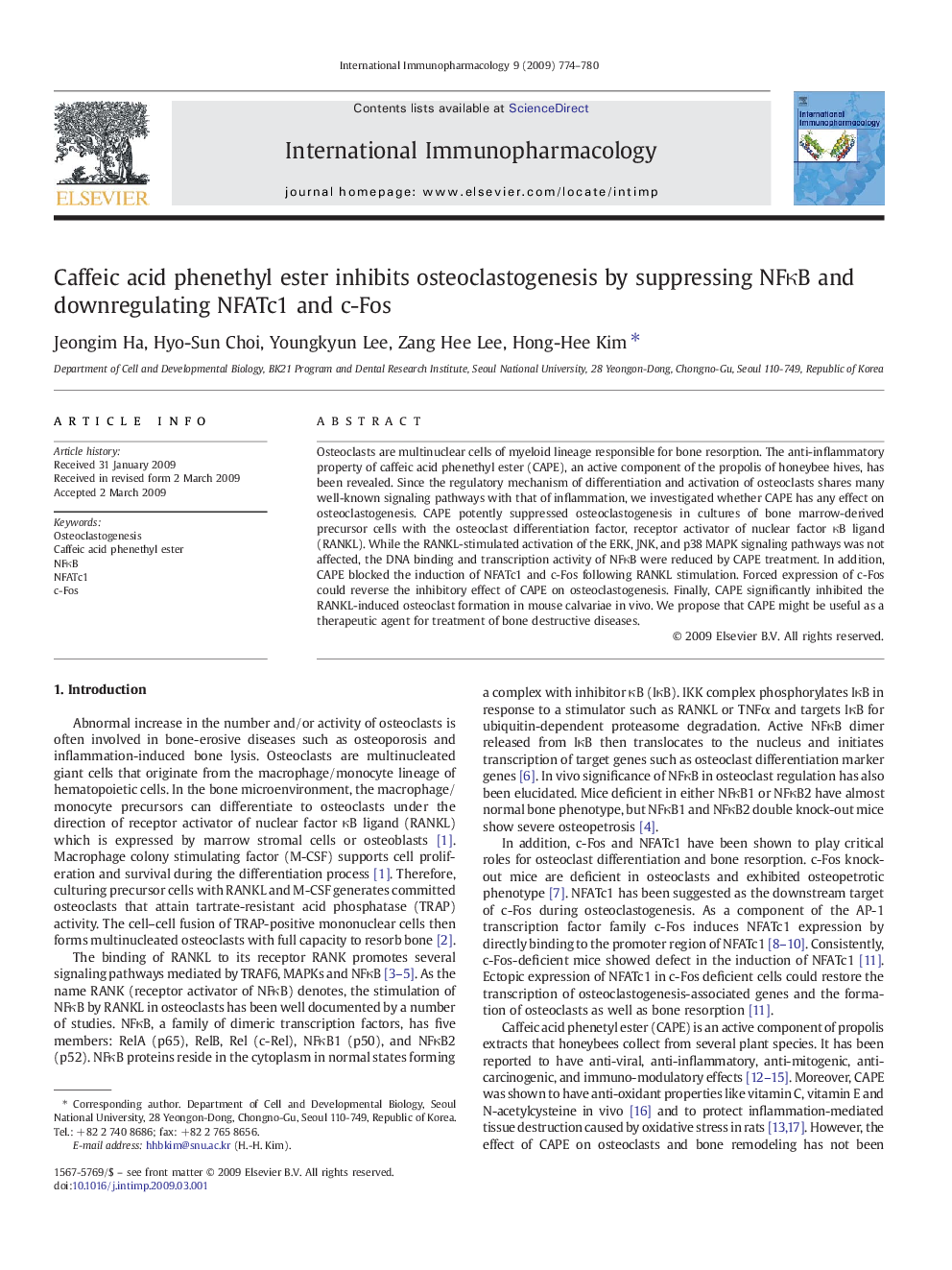| Article ID | Journal | Published Year | Pages | File Type |
|---|---|---|---|---|
| 2542070 | International Immunopharmacology | 2009 | 7 Pages |
Osteoclasts are multinuclear cells of myeloid lineage responsible for bone resorption. The anti-inflammatory property of caffeic acid phenethyl ester (CAPE), an active component of the propolis of honeybee hives, has been revealed. Since the regulatory mechanism of differentiation and activation of osteoclasts shares many well-known signaling pathways with that of inflammation, we investigated whether CAPE has any effect on osteoclastogenesis. CAPE potently suppressed osteoclastogenesis in cultures of bone marrow-derived precursor cells with the osteoclast differentiation factor, receptor activator of nuclear factor κB ligand (RANKL). While the RANKL-stimulated activation of the ERK, JNK, and p38 MAPK signaling pathways was not affected, the DNA binding and transcription activity of NFκB were reduced by CAPE treatment. In addition, CAPE blocked the induction of NFATc1 and c-Fos following RANKL stimulation. Forced expression of c-Fos could reverse the inhibitory effect of CAPE on osteoclastogenesis. Finally, CAPE significantly inhibited the RANKL-induced osteoclast formation in mouse calvariae in vivo. We propose that CAPE might be useful as a therapeutic agent for treatment of bone destructive diseases.
